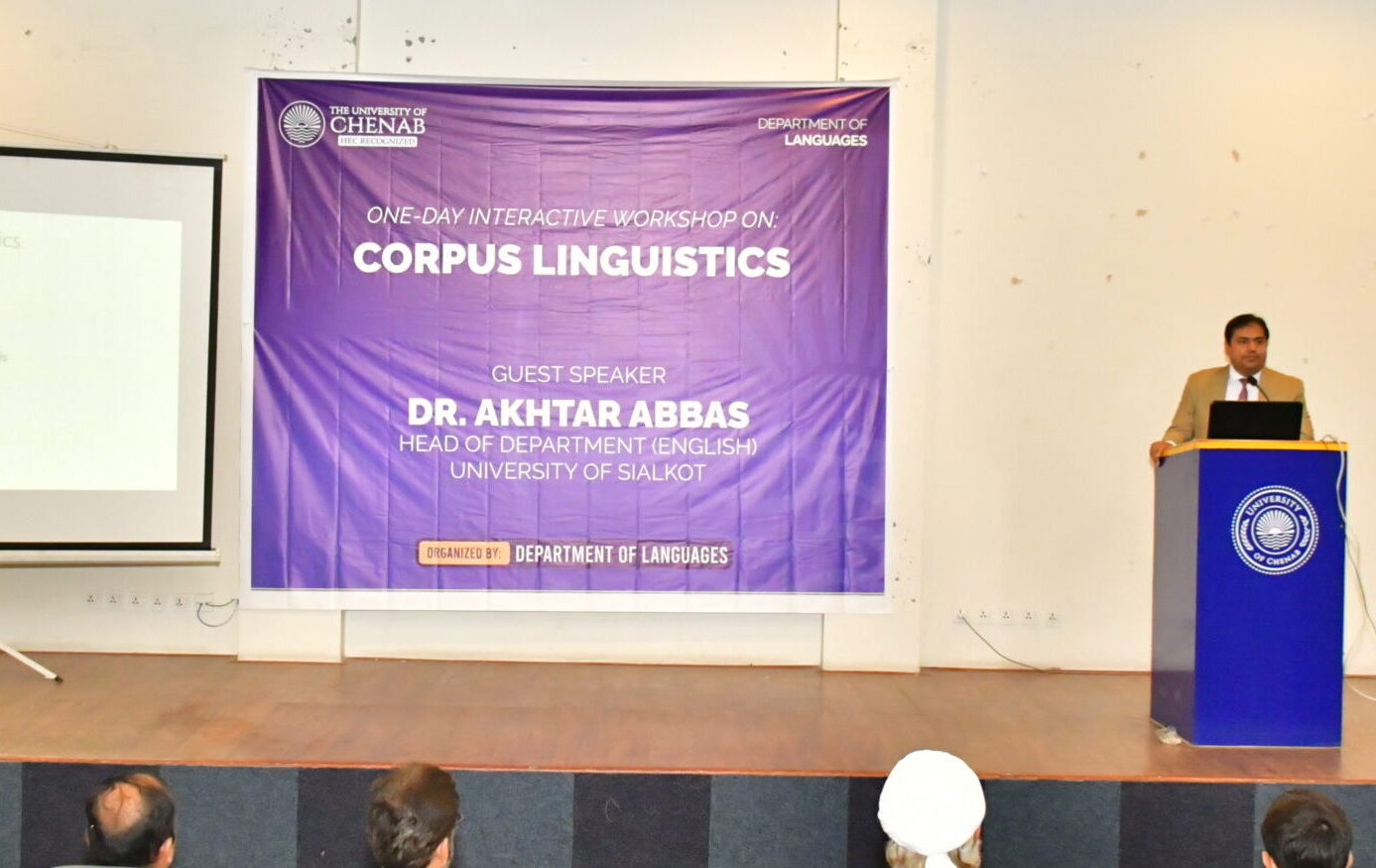Exploring Language Through Data and Innovation
The Department of Languages at The University of Chenab organized an intellectually stimulating Corpus Linguistics Workshop that brought language research to life. Hosted in the university auditorium, the workshop welcomed linguists, researchers, and language enthusiasts eager to explore data-driven methods of studying language.
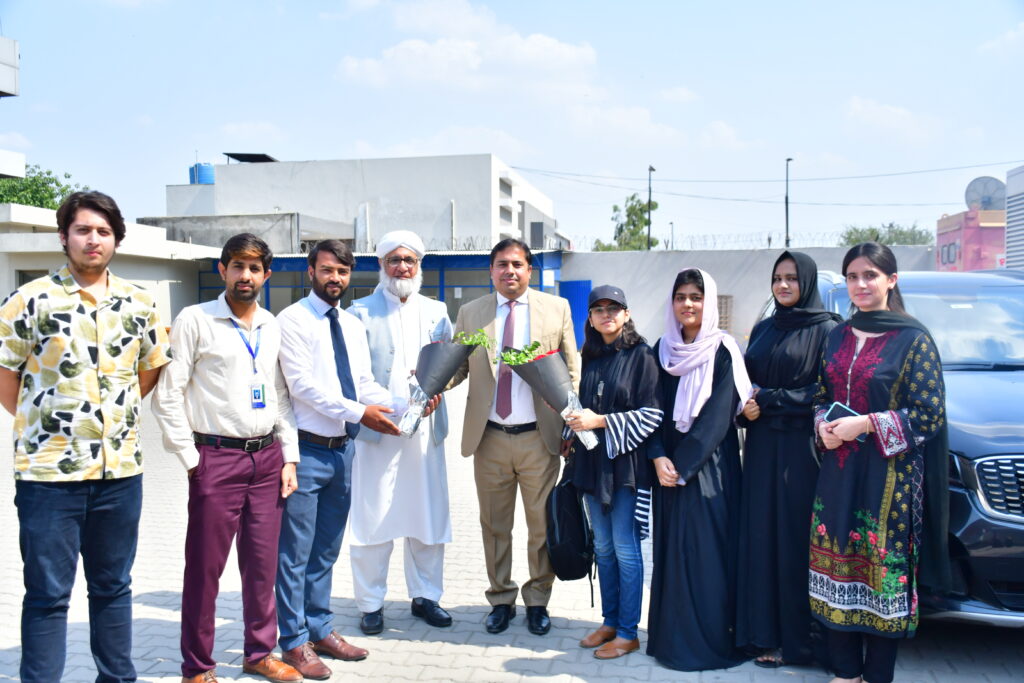
Led by Dr. Akhtar Abbas, Head of the Department of English at the University of Sialkot, the session introduced participants to the power of corpora in analyzing language structures, usage patterns, and discourse dynamics. The event offered a fresh perspective on how computational tools redefine linguistic inquiry in the modern academic landscape.
Advancing Language Studies through Corpus Linguistics Workshop
The Corpus Linguistics Workshop introduced participants to a systematic way of studying real-world language data. With a focus on both theory and practice, the event bridged conventional linguistic approaches with technological tools.
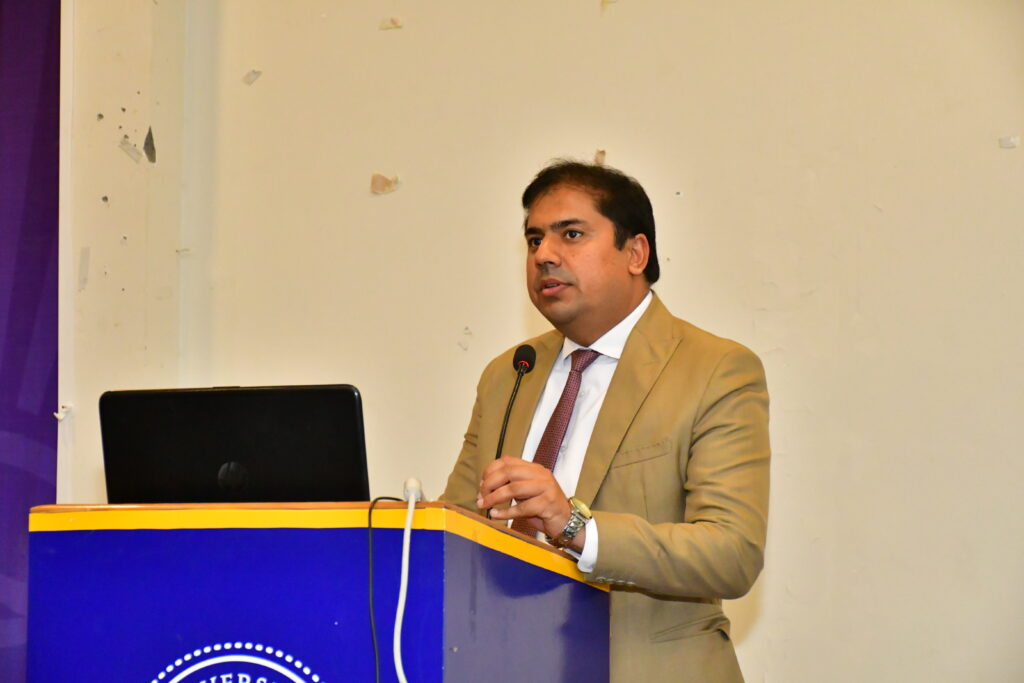
Dr. Abbas opened the session with an engaging overview of the historical development and significance of corpus linguistics. He explained how corpora serve as valuable resources for analyzing spoken and written language across contexts. His examples showcased the relevance of corpora in education, media studies, sociolinguistics, translation, and lexicography.
UChenab’s Department of Languages designed this workshop to align with its mission: empowering students with globally recognized research tools and methodologies. Through live demonstrations, practical exercises, and guided software walkthroughs, the participants gained hands-on experience with corpus analysis platforms like AntConc and Sketch Engine.
Objectives of the Corpus Linguistics Workshop
- Introduce the fundamentals and applications of corpus linguistics.
- Equip students with skills in digital language analysis using corpora.
- Explore how corpora support linguistic research, translation studies, and discourse analysis.
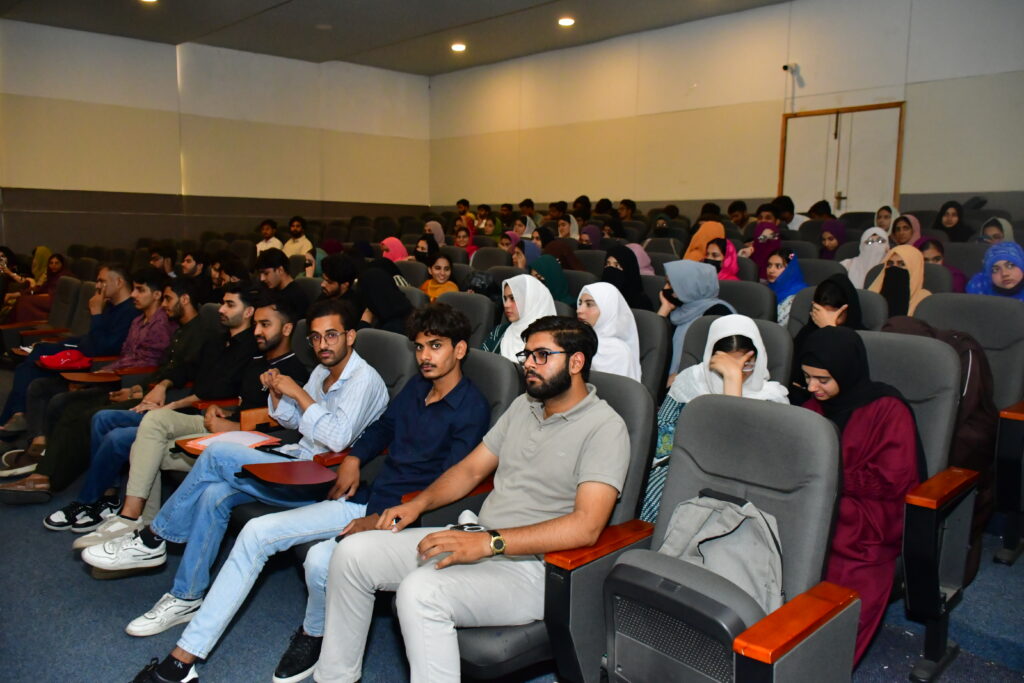
- Demonstrate tools for keyword extraction, concordance generation, and frequency analysis.
- Promote analytical thinking and research autonomy in linguistic scholarship.
Empowering Language Research with Practical Tools
The Corpus Linguistics Workshop at UChenab stood out for its dynamic approach to language education. Students explored tools that allow linguists to ask deeper, data-driven questions. Dr. Abbas illustrated how even a single research query—such as analyzing gendered language in political speeches—could produce rich, quantifiable results when guided by corpus tools.
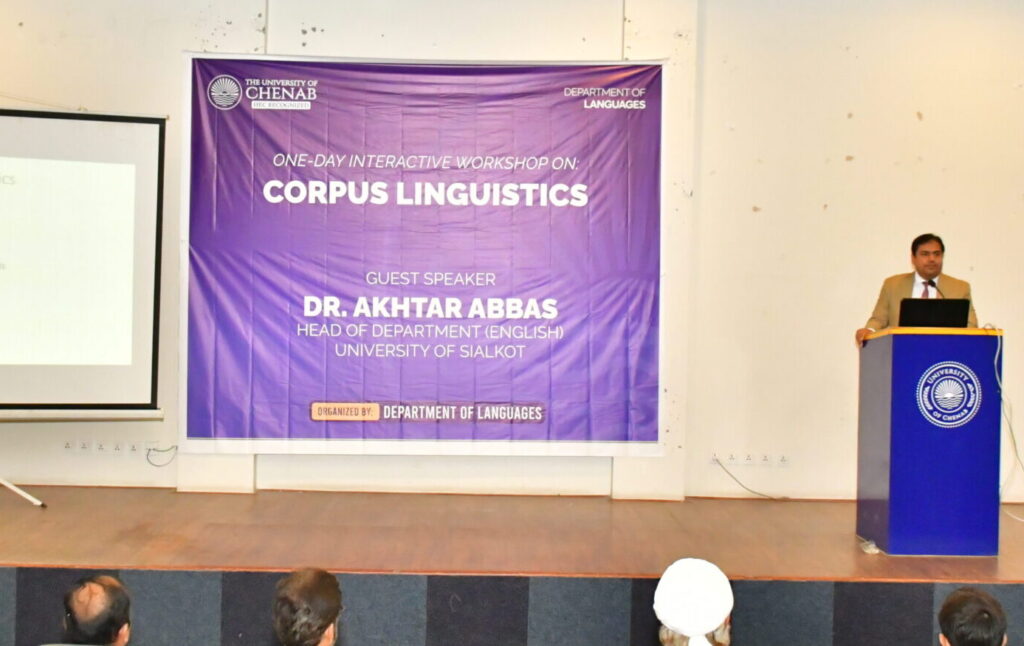
Attendees practiced building their own mini corpora from collected texts. They analyzed frequency lists, studied word clusters, and used concordance lines to observe language in use. This direct engagement allowed them to witness how empirical evidence enhances theoretical arguments in research writing. Such exposure bridged the gap between traditional grammar-based learning and modern computational linguistics. UChenab continues to champion this balance through workshops like these.
An Insightful Dialogue Between Expert and Learners
Dr. Abbas maintained a warm, collaborative tone throughout the workshop. He encouraged students to question language patterns, test hypotheses, and view texts as dynamic data sets. He shared real-world applications of corpus linguistics in curriculum design, textbook development, and second language acquisition. The Q&A session allowed students to raise queries on data collection methods, annotation standards,
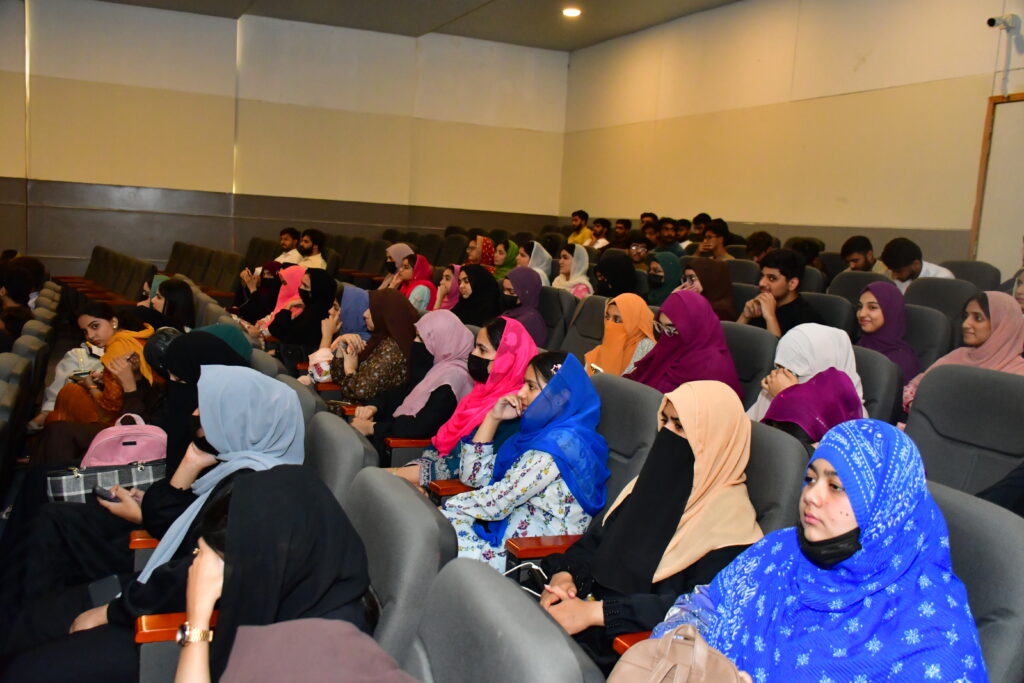
and ethical considerations in linguistic research. The discussion highlighted the growing need for linguistic scholars to incorporate computational tools in their methodologies. This knowledge exchange reflected UChenab’s student-centered educational model, where every interaction serves as an opportunity for growth.
A Culture of Research and Discovery
The Corpus Linguistics Workshop exemplified UChenab’s dedication to academic enrichment and research excellence. The Department of Languages regularly curates events that elevate language learning beyond traditional classroom instruction. Faculty members present at the session praised the workshop’s relevance to evolving linguistic studies.
They recognized its potential to contribute meaningfully to students’ MPhil theses, classroom projects, and future academic publications. Students left the auditorium equipped not only with technical know-how but also with renewed enthusiasm to pursue language as a scientific discipline grounded in evidence.
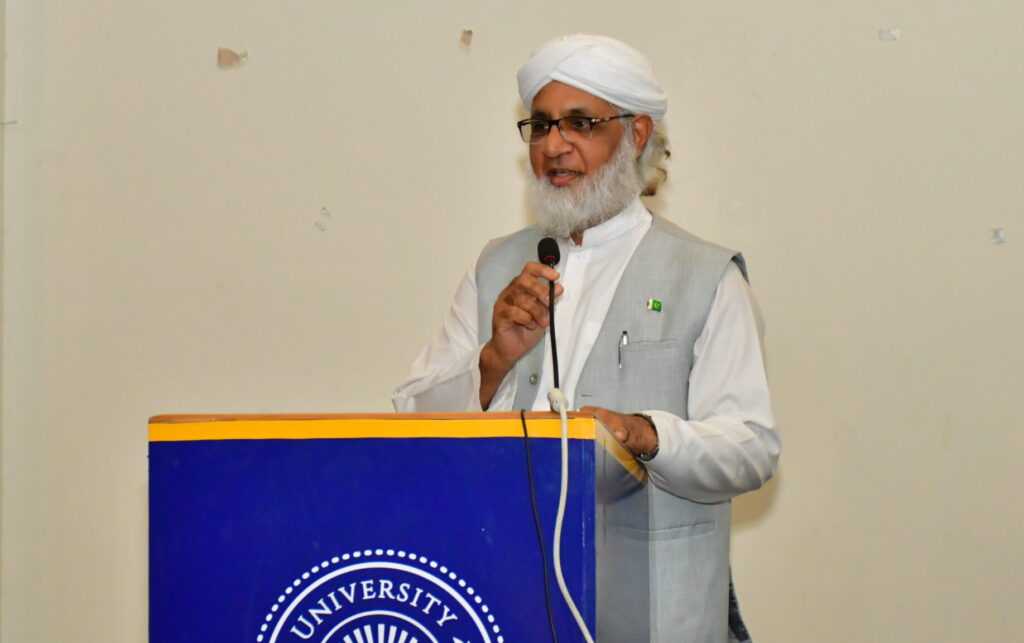
Why Corpus Linguistics Matters in the Modern Era
Corpus linguistics reshapes how scholars and students understand language. By analyzing large datasets, linguists can make informed claims about language use in different domains. From social media discourse to historical document analysis, corpus tools make it possible to observe shifts in meaning, register, and context over time.
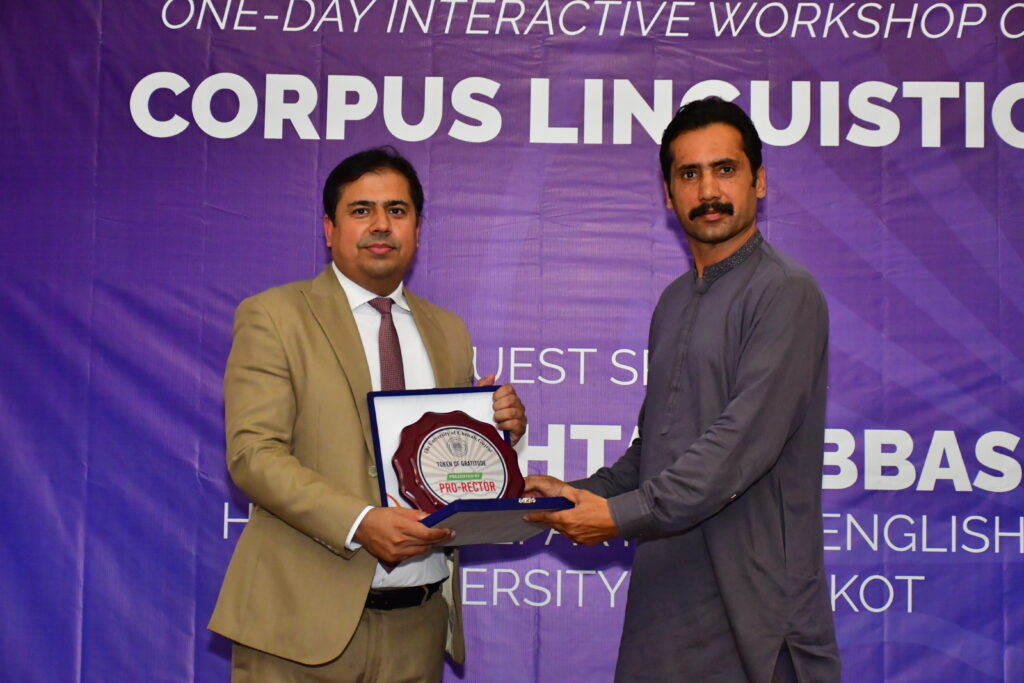
The Corpus Linguistics Workshop at UChenab demonstrated that this field is not only about numbers or frequency—it’s about understanding people through the language they use. Every text becomes a story, every word a signal, and every corpus a map of human expression.
Core Strengths of UChenab’s Approach to Linguistics
- Interdisciplinary Integration: Corpus linguistics connects language with technology, statistics, education, and media.
- Hands-On Learning: Real-time data exploration deepens students’ understanding and application of theory.
- Global Relevance: Corpus tools are used worldwide by scholars, translators, educators, and content creators.
- Research Development: Students enhance their thesis work, class assignments, and professional profiles.
- Expert-Led Sessions: UChenab invites specialists who model academic leadership and inspire research excellence.
Future Pathways in Corpus Linguistics
The event concluded with encouragement for students to further explore areas like:
- Computational linguistics
- Digital humanities
- Language teaching and assessment
- Translation and terminology management
- Discourse analysis using corpus methods
- Media language tracking
- Bilingual and multilingual corpus creation
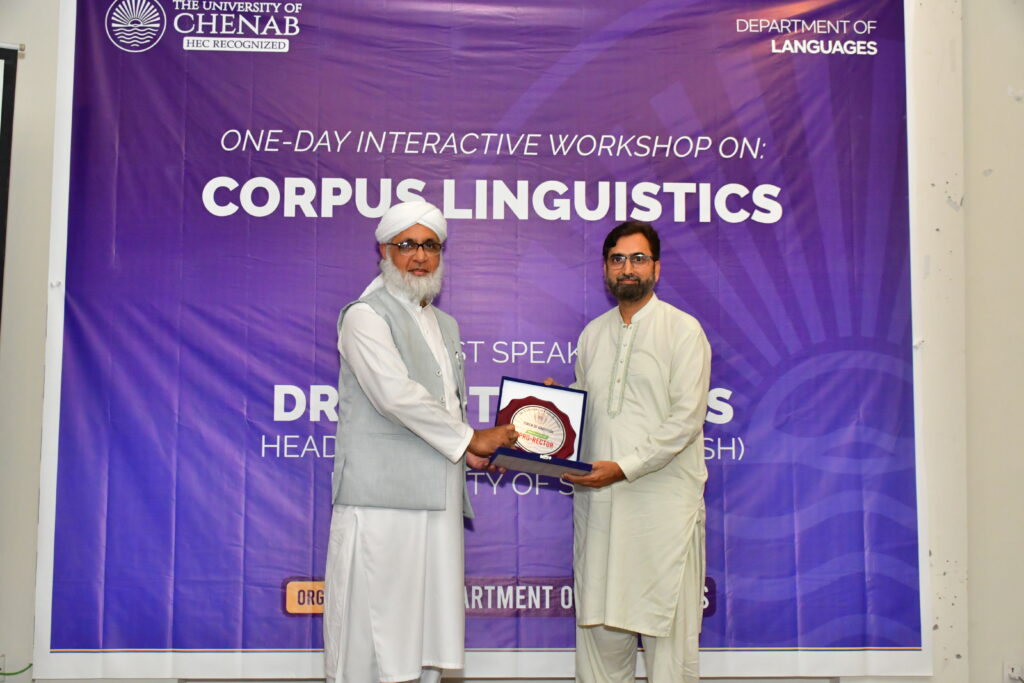
Nurturing Linguists for the Digital Age
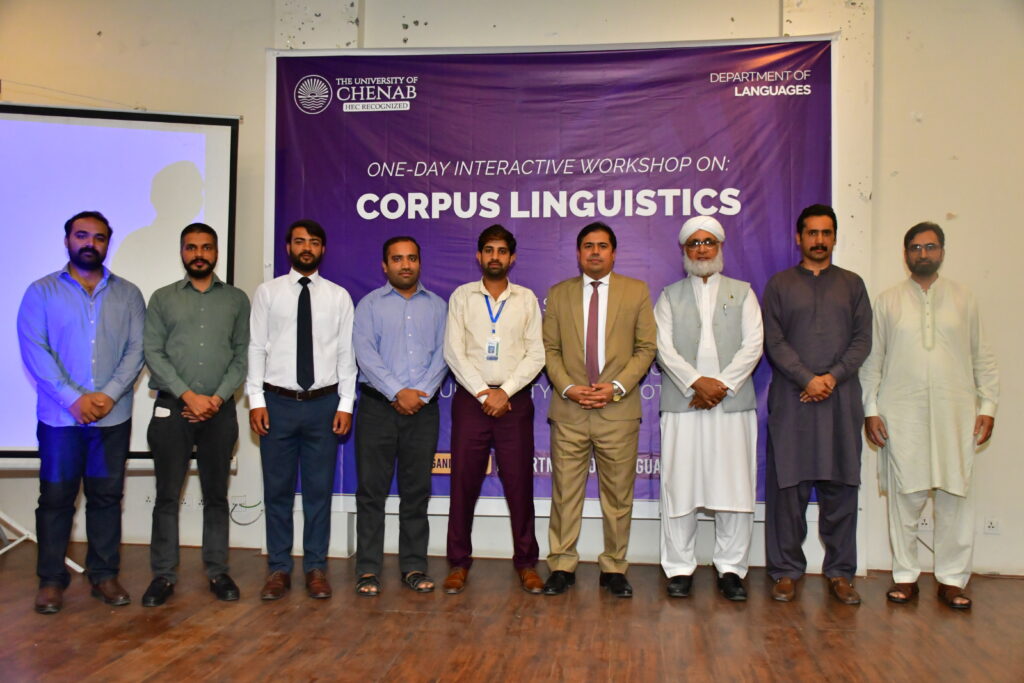
Through initiatives like the Corpus Linguistics Workshop, The University of Chenab remains a forward-looking institution committed to academic innovation. This workshop was more than a training session—it was a celebration of data-driven discovery and linguistic curiosity. Looking ahead, the Department of Languages will continue to offer opportunities that blend creativity, technology, and critical thinking, preparing future researchers to contribute meaningfully to global linguistic discourse.

